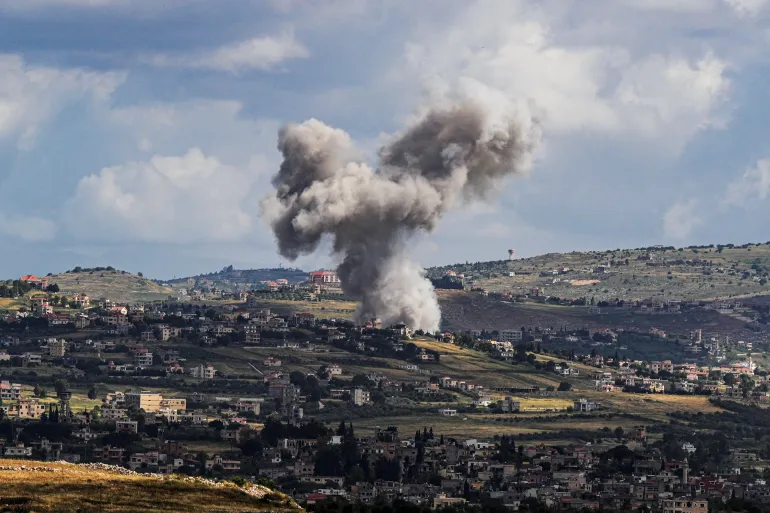The escalating tensions between Israel and Lebanon have reached a new peak with the assassination of Hezbollah’s senior commander, Taleb Abdullah, by Israel, and Hezbollah’s subsequent retaliation. This marks the most intense exchange of hostilities between the two nations since the 2006 war. Hezbollah launched over 200 missiles and rockets across its southern border, targeting northern Israel in response to the assassination.
The conflict between Israel and Lebanon is intertwined with the ongoing strife between Israel and Hamas. Since October 7, when Hamas led an attack on Israel, over 37,000 Palestinians in Gaza have been killed by Israeli forces. The International Criminal of Justice, prompted by South Africa, has brought genocide charges against Israel for its actions in Gaza. Analysts suggest that a ceasefire in Gaza could shift Israel’s military focus to Lebanon, where it has been exchanging attacks with Hezbollah.
The exchanges across Lebanon’s southern border are not balanced. An April investigation by Al Jazeera revealed that Israel had launched more than five attacks on Lebanon for every attack from Hezbollah. During this time, Israel has killed about 300 Hezbollah members and more than 70 civilians, while Israel reports a loss of about 15 soldiers and 10 civilians.
The Israeli government, led by Prime Minister Benjamin Netanyahu, is under domestic pressure as the school year approaches and more than 90,000 people remain displaced from their homes in northern Israel. Netanyahu has stated that Israel is “prepared for a very intense operation” on the border with Lebanon. However, analysts believe Israel would struggle to widen the war on Lebanon without first achieving a ceasefire in Gaza.
A push for war against Hezbollah and Lebanon does not guarantee victory for Israel. Any war would be “extraordinarily counterproductive” and could inflict heavy suffering on both the Lebanese and Israelis, according to Karim Emile Bitar, professor of international relations at Saint Joseph’s University in Beirut. Hezbollah, generally believed to be the world’s strongest non-state actor, has military capabilities significantly stronger than those of Hamas.
In recent weeks, Hezbollah has also used new weapons not previously utilized on the battlefield, including anti-aircraft missiles, which it claimed forced Israeli fighter jets to retreat. This move was “symbolic”, challenging Israel’s aerial supremacy. A wider war in Lebanon could come with serious consequences for both Israel and Lebanon. US officials have warned that an escalation against Hezbollah could draw in Iran and other allied forces in the region. Lebanon, with its collapsed economy, would surely be left in an even worse state. A war would bring “extra large destruction by Israel on Lebanon”, said Tannous Mouawad, a retired brigadier general in the Lebanese army.

